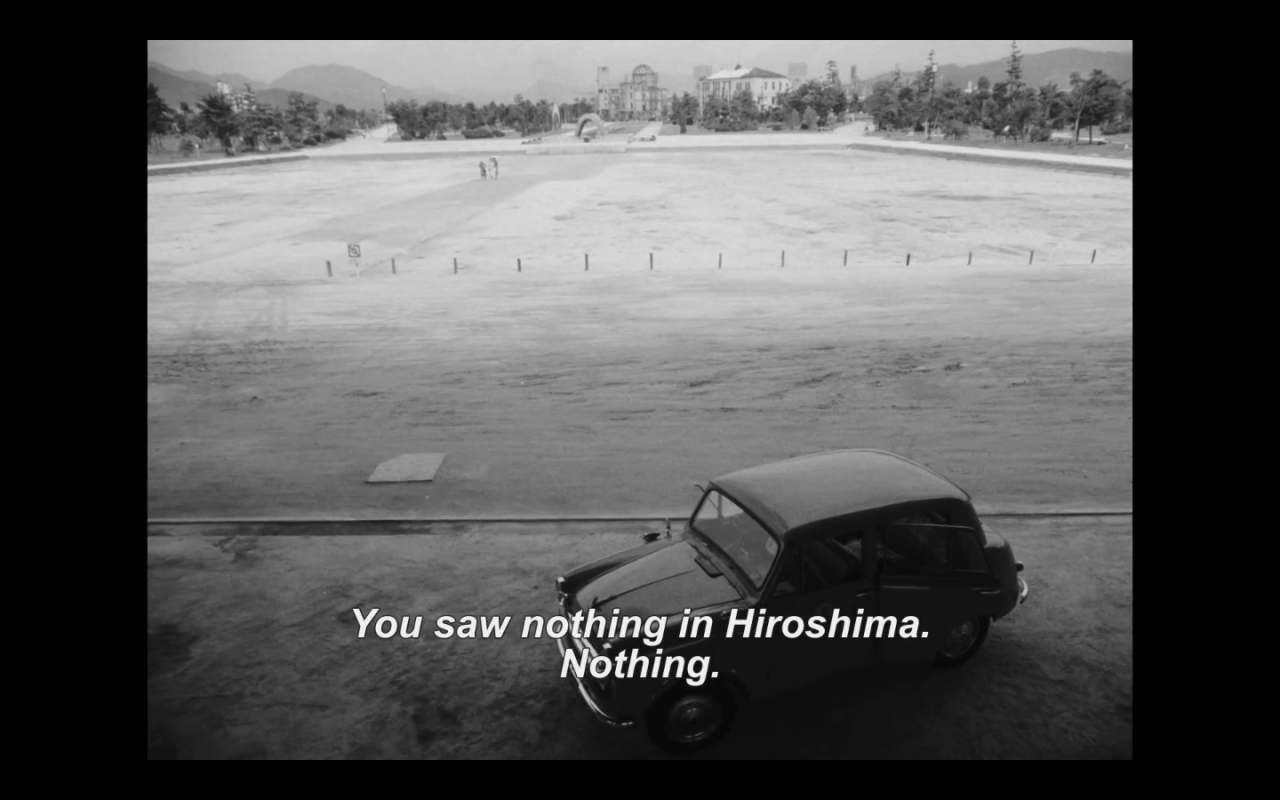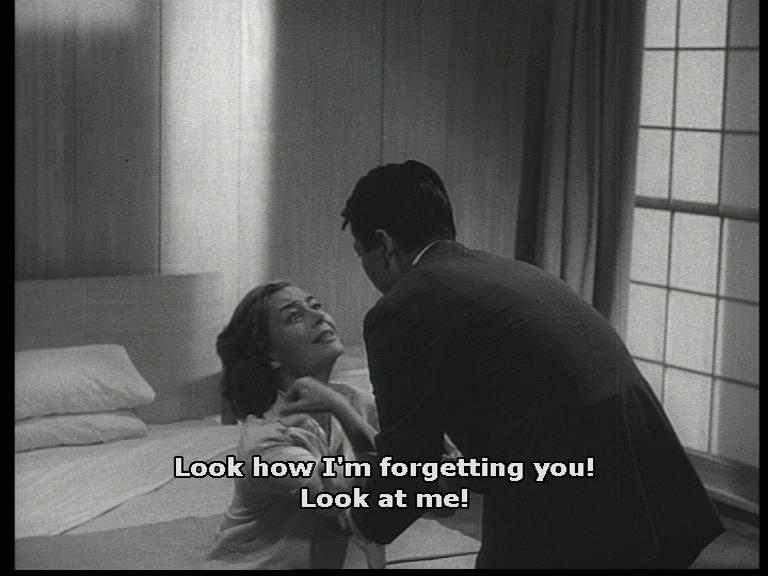Hiroshima mon amour by Alian Resnais- Film Analysis
Hiroshima mon amour by Alian Resnais- Film Analysis
Krutika Shinde
The opening scene was so impacting. The dust showering on their naked bodies completely covers them with it. It stands for the city of Hiroshima where many bodies were buried under the dust of bombs and are still unable to escape their past but, there are two bodies with different histories, it also says that the French actress has also suffered just like the city of Hiroshima did but in a different way and their sufferings cant be compared. It was a scene with a major close-up of two naked bodies which was so beautiful with a black and white effect, the whole film is with the black and white effect. It was a present scene that depicted the past, then the scene comes into the present state where the dust is replaced by the sweat of their bodies which says about two things, first is that it says about the city of Hiroshima which was rebuilt which is still alive even after tragic events and the second thing is that the French actress is in the present but she is trying to escape her tragic past just like the Japanese man or city of Hiroshima itself who is trying to escape its pain of losing their people in the bombing.
The second scene takes us to the French women's tourist eye view of the hospital and of the museum in Hiroshima. She says to the Japanese man that "I saw everything" he replies "You saw nothing in Hiroshima. Nothing" and both of them keep on repeating these lines throughout the scene. It shows a hospital where there were major sufferings took place after the nuclear bomb, as many people were victims of it and later on they these victims were treated over there, there was so much of pain but now in present, the hospital looks just like a normal hospital. If we talk about the museum, there are various historic things kept over there which only the people who were present in Hiroshima while the bombing took place have only experienced it, the Japanese man thinks that the french women can never experience the past of the city of Hiroshima through her vision and that's the reason why the Japanese man keeps on repeating this powerful line that "You saw nothing in Hiroshima. Nothing."
In this film, multiple flashbacks are used. The French woman sees the Japanese lover's hand twitch which takes her to the past memory of her dead lover's hand twitch when he was being kissed by her. The scene showed for 2 seconds and then again the Japanese lover was shown again. It's like being in present but still not healing from the past trauma. This was a powerful scene and it was my favorite scene from this whole film.
Alian Resnais has given attention to so many details. I liked the scene where the two watches are crossing each other, it symbolizes about two different people, born in different areas, have experienced different things, different pasts but have come together at the same place for a moment to share a temporary affair and are then moving on with their life.
After making love with him the french woman tries to break up with him but then they meet several times- at the shoot where she went to plays a role in the film which was about peace, at his house where they make love again and then again at a tea room. At various events of the day, she tries to recall her wartime first love who was a German soldier who was later shot and the whole town punished her by cropping her hair and by trapping her into the cellar. She never opened her memories to someone but for the first time ever in her life, she shares everything with the Japanese man because they have a tragic past that is unspoken. Hiroshima suffered, so did the French women, but at a different place with different experiences, both are terrible pains, have tragic pasts but can never be compared.
The opening of the film and the scar which she has on her head symbolizes Hiroshima and the pain behind the curtains of it's past.
The word " Hiroshima" and "Nevers" are places that are repeated in this whole film again and again. The Japanese man is from Hiroshima and the French actress is from Nevers. The names of the characters are not revealed in the whole film. Various documentaries were also shown of the effects which took place after the bombings- Hiroshima is still living but under the sand of the bomb which was portrayed in the first scene itself.
In some scenes, she emerged her past into her present when she was sharing her past story with her Japanese lover. The tense was changed. The past tense became the present tense. She replaces "He" with "You" as if she is talking to her first love who was a German soldier who is actually dead. Somehow, she reconnects her past lover to her present lover.
There was magic filled with its music which was used in this film. If we talk about the camerawork, it was splendid! There were many long shots, medium close-ups and a few of them were also low-angle shots as shown below. The director has captured so many details and so many emotions in every shot which is just wow!
She names the man "Hiroshima" because she never heard his side of the story but he was a good listener who stays in Japan and the Japanese man names her "Nevers" because she is from Nevers which is in France. What I can interpret is that she returns back to her country France with the memories of the Japanese man who she names as "Hiroshima". Maybe, they just don't want to know each other's real names because the French women is never going to stay, so instead of knowing what the real name is, they just name each other from where they are.
Is this film the story of a woman who is from Nevers which is located in France? Or is it a story of the city Hiroshima where the disaster occurred? Or about two different places, two different people with different tragic experiences? There are many questions in this film itself, it all depends on how the viewers interpret and answers them for themselves.
Some of the lines which I find amazing from this film:



















Comments
Post a Comment